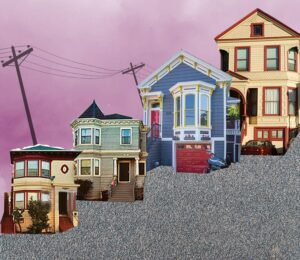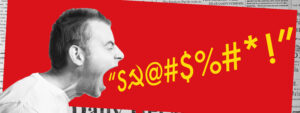Religion is everywhere ,and I mean E-V-E-R-Y-W-H-E-R-E. It has infiltrated our language, our patriotism — hell, I can’t even sneeze without someone trying to “bless” me, for Christ sakes.
There are prayers at sporting events and city council meetings. It has permeated public schools with the institution of the Pledge of Allegiance as part of daily routines. The “under God” bit was added in 1954 because legislators prior to that date seemed to have taken that whole separation of church and state thing pretty seriously.
It is a constant, unavoidable part of American life whether one likes it or not — it is relentless in its permeation of every corner of our lives.
Religion is as ingrained in our society as misogyny. Even in a place as progressive as Mills there has never, in my time here, been a public recognition of non-believers.
All of the official ceremonies that I’ve attended at Mills include some sort of non-denominational, interfaith blessing, covering all its bases by asking those present to pray to whatever their personal version of god or goddess is.
During my first day on campus, in a group discussion, someone assumed the trite axiom , “everything happens for a reason,” could offer comfort for tragedy. Ugh, the impudence. Tell that to all the starving people, the girls who suffer genital mutilation, or the Black boys in Oakland who have just a 50 percent chance of getting shot before graduation. (See the SF Chronicle’s three-part article, “Even Odds“)
When you cite karma or say that there is some “greater plan,” you’re saying that the victims of poverty, war, violence, etc., either deserve it or are part of some lesson plan that absolves believers from responsibility in the perpetuation of life as we know it.
I have never once heard a moment given or a mention made to acknowledge a high possibility that there are students or staff members who do not believe in any god or the idea of a higher power. There are even people who believe that all this religion is detrimental to society. They are known as atheists, agnostics, anti-theists or humanists, just to name a few.
I didn’t grow up in a secular environment. My parents were active, evangelical Christians who dedicated their lives to furthering their faith at every turn. I went to all-Christian schools, and my father worked for Campus Crusade for Christ and then had a very long career with the planet’s largest non-governmental organization, World Vision International. They are the “Hey, we will feed all you starving people if you will give up your current beliefs to read and adopt our Bible’s version of truth” folks.
Growing up, I did not know a single person who wasn’t an evangelical Christian, besides my Catholic grandparents and the Jewish people my brother went to an afterschool program with for dyslexics. I was taught that we were right and that I should pity and pray for the souls of my grandparents and Jews because they were going to hell, which had the odd affect of me feeling terrible and superior at the same time.
Coming to the realization that I did not possess faith became a painful and shocking experience, and it took place slowly over the last 20 years. I tested lots of ideas and truths along the way. There was the spiritual new age seminars, fire walking, Buddhism and so forth, but no matter how hard I tried, no matter how earnest my yearning, I came to the point where I could no longer deny my utter lack of faith.
This unraveling of faith was unmooring because it is so omnipresent in American society that one must believe in something, and here I was, looking into the deepest parts of myself and not seeing so much as a mustard seed!
It took me years to find the likes of Christopher Hitchens, Daniel Dennet and Sam Harris, the current icons of the atheist movement. Ironically, similar to many of the “finding Jesus moments” I witnessed over the course of my life, I had finally found a tribe of sorts. They didn’t believe either, but they still felt the joy of wonder, the conviction of morality and a voracious compassion toward the suffering of others.
I’m not asking to take away the rights of anyone to believe anything and everything they want to believe. I am asking for an acknowledgement that the religious and the spiritual are a majority and enjoy the privilege that comes with being such.
The outright refusal to recognize the faithless as a group is to malign us entirely. While ideas about inclusion are batted around campus, I’d like to ask that those of you in the majority open your eyes, hearts and minds just enough to acknowledge that we exist.


